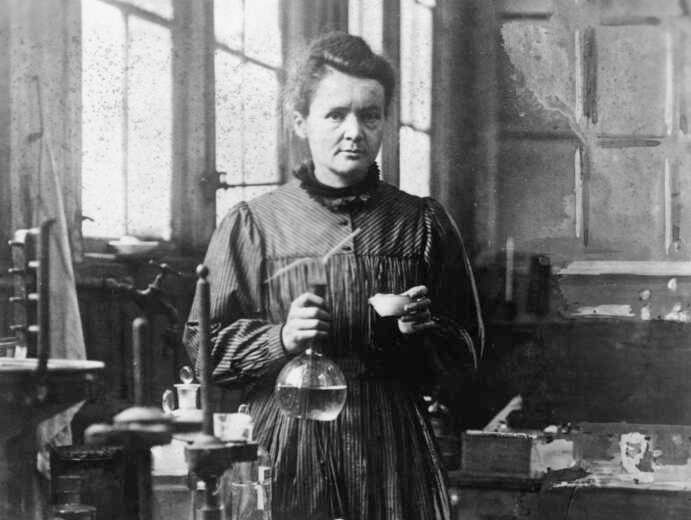Who is Marie Curie?
- Eda_Eren

- Sep 12, 2023
- 3 min read
Marie Curie, a name that resonates with scientific greatness and groundbreaking discoveries, remains an enduring icon in the world of science. Her contributions to the scientific community in the areas of physics and chemistry have made an endless impression and continue to motivate future generations of researchers. Maria Skodowska, born in Warsaw, Poland, in 1867, began a unique journey that would push the limits of science and alter how we perceive the physical world for all time.
Early in her life, Marie Curie faced difficulties and was utterly determined to follow her passion for science. She encountered many obstacles in her quest for education because she was raised in a politically volatile country. Despite these difficulties, she showed remarkable intellectual ability and a desire to learn. Her perseverance brought her to Paris, where she enrolled in the Sorbonne, one of the most renowned colleges in the world, in 1891.
Marie Curie won not one, but two Nobel Prizes for her contributions to the study of radioactivity, which formed the basis of contemporary nuclear physics. Along with her husband, Pierre Curie, and Henri Becquerel, she shared the 1903 Nobel Prize in Physics for their studies on radiation.

She became the first woman to ever win the Nobel Prize thanks to this accomplishment. She became the first and only woman to win the Nobel Prizes in two distinct scientific categories in 1911, solidifying her place in history. This time, she received praise in the chemistry community for discovering the elements polonium and radium and conducting a study on their characteristics.
They investigated the radioactive characteristics of numerous elements in-depth as a group. Their pioneering work paved the way for radioactivity's useful applications in industry and medicine as well as advancements in our understanding of radiation. The Curies' unwavering commitment to their work and openness to working with other researchers provided the foundation for many scientific advances in the 20th century.
Marie Curie's work with Pierre Curie was beneficial to her scientific achievements. She worked in the development of mobile radiography units, or "radiological cars," during World War I, which provided invaluable medical support on the battlefield. Her selfless dedication to using her scientific expertise for the greater good exemplifies her character and commitment to humanity. In addition to her scientific accomplishments, Marie Curie's life and career continue to serve as a source of inspiration for women in science. She shattered the gender barriers of her time, demonstrating that scientific excellence knows no gender. Her enduring legacy has paved the way for countless women scientists who have followed in her footsteps.

The achievements of Marie Curie are proof of the effectiveness of passion, tenacity, and intellectual curiosity. Her innovative work in the area of radioactivity, her spirit of exploration, and her dedication to furthering scientific understanding have had an enduring effect on the scientific community. Her legacy continues to motivate and encourage scientists, especially women, to advance knowledge and make significant contributions to improving humanity. The scientist Marie Curie will always be regarded as a pioneering individual who paved the way for future generations of scientists. As she has said:
"It is my earnest desire that some of you should carry on this scientific work and keep for your ambition the determination to make a permanent contribution to science." - Marie Curie
Sources: Krulwich, R. (2010, December 14). Don’t come to Stockholm! Madame Curie’s Nobel scandal. NPR. https://www.npr.org/sections/krulwich/2010/12/14/132031977/don-t-come-to-stockholm-madame-curie-s-nobel-scandal
Graveline, D. (2014, November 28). Famous Speech Friday: Marie Curie’s 1911 Nobel Prize lecture - Denise Graveline. Denise Graveline. https://denisegraveline.org/2014/11/famous-speech-friday-marie-curies-1911.html
Marie Curie the scientist | Biog, facts & quotes. (n.d.). Marie Curie. https://www.mariecurie.org.uk/who/our-history/marie-curie-the-scientist#:~:text=Born%20Maria%20Sk%C5%82odowska,She%20never%20lost%20this%20passion.
The Nobel Prize in Physics 1903. (n.d.). NobelPrize.org. https://www.nobelprize.org/prizes/physics/1903/marie-curie/biographical/
Marie CURIE. (n.d.). https://scientificwomen.net/women/curie-marie-8
.png)



Comments